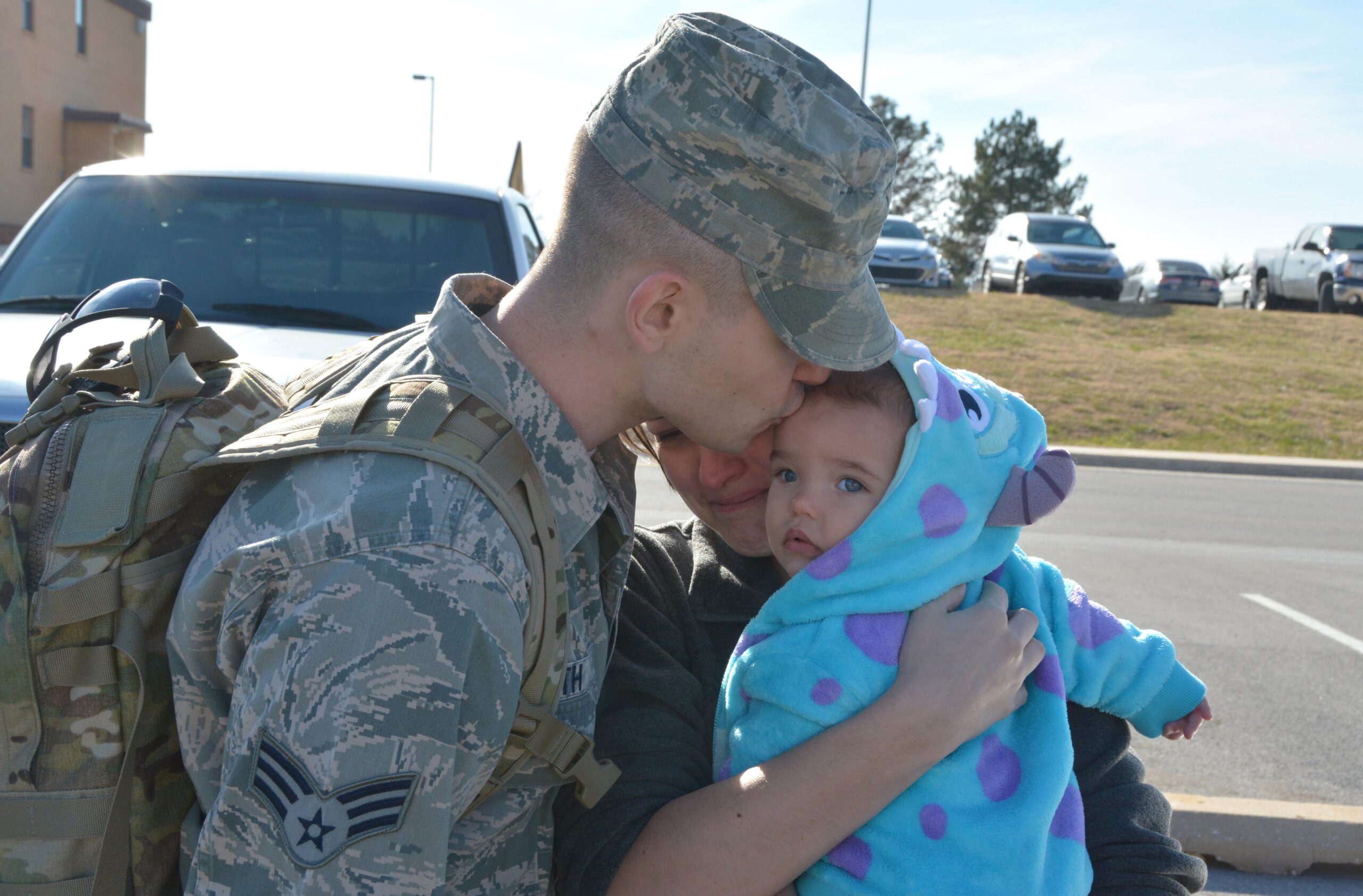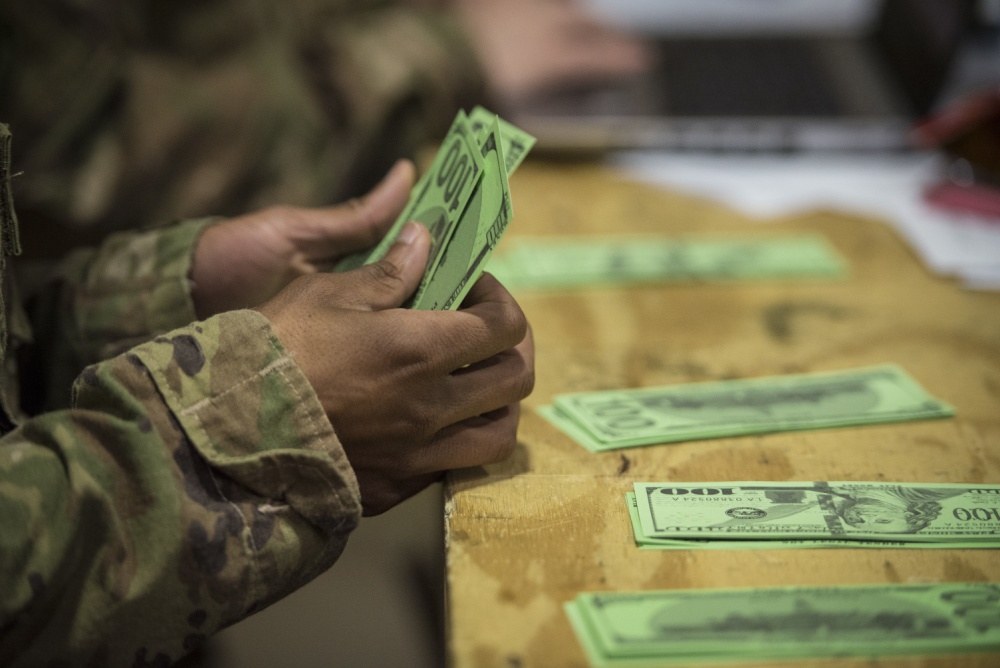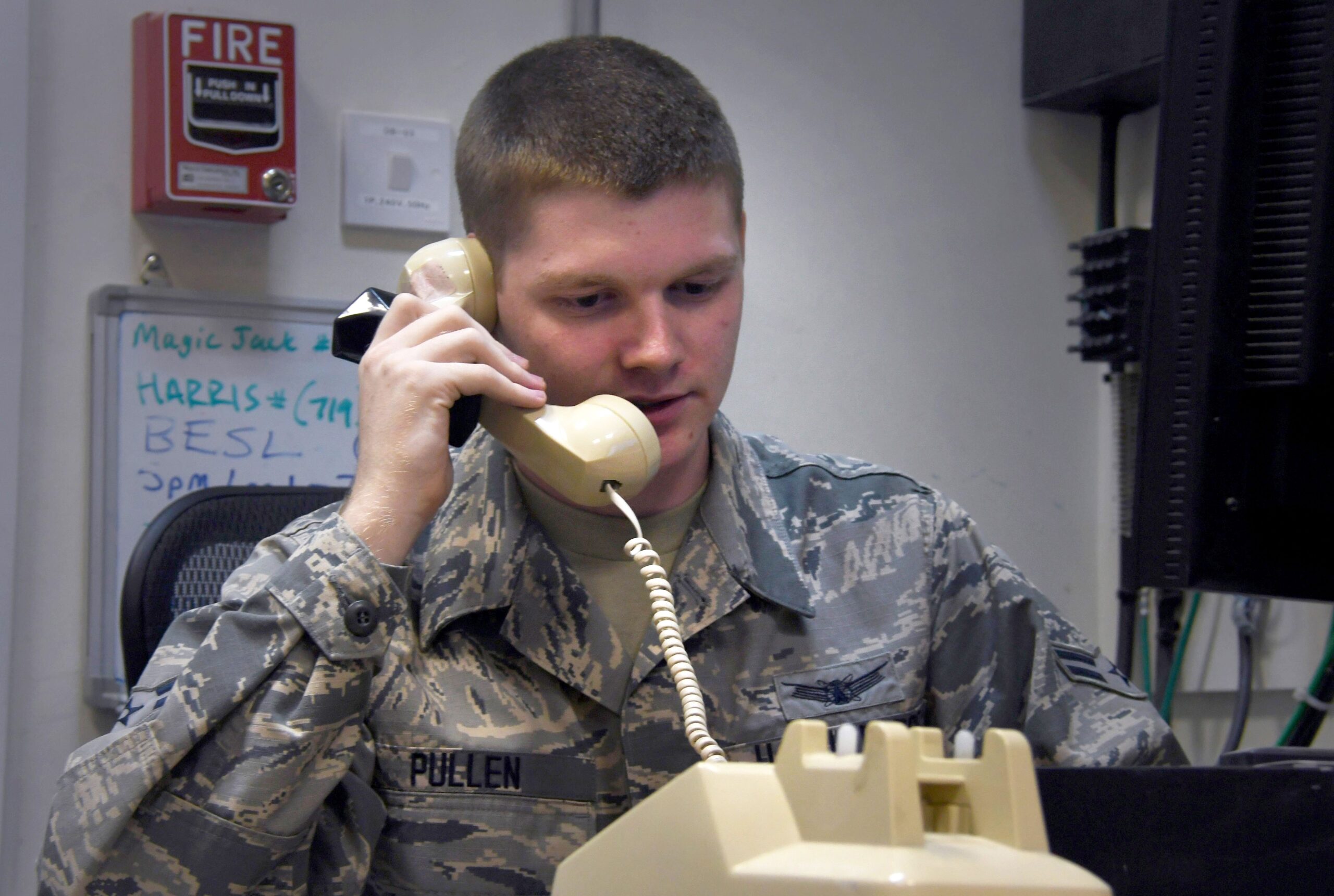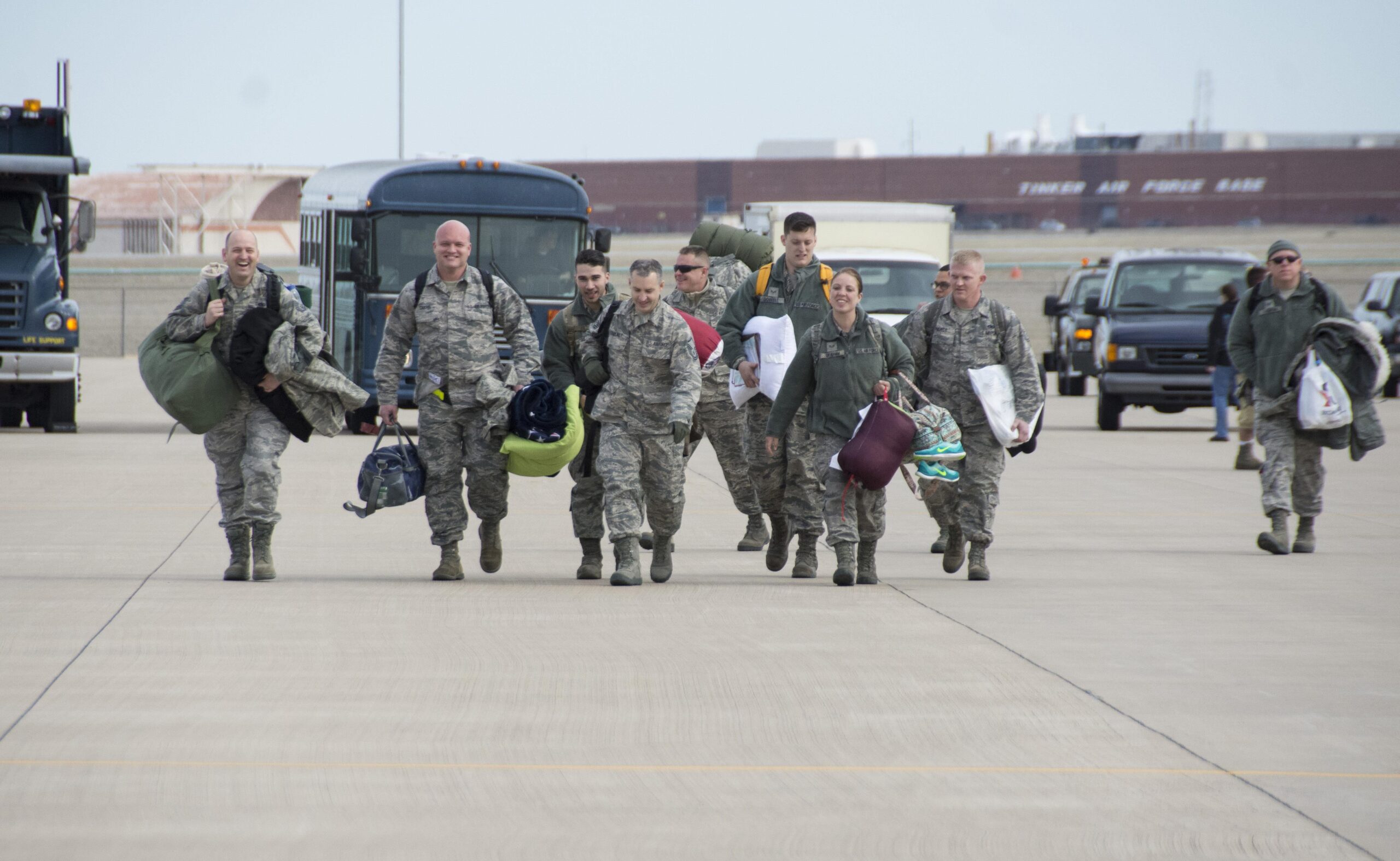If you’ve just gotten the news that your loved one is about to go on their first military deployment, you’re probably feeling pretty overwhelmed.
Once the feelings settle, you may be wondering how to get through your first deployment.
Relationships do change when your loved one deploys. When you put miles and time zones between couples, along with a lack of communication opportunities, it can feel unbearable.
If you’re willing to put in the time, commitment, and loyalty, it’s possible to survive deployment as a couple. By preparing ahead of time with a game plan, you’ll come out even stronger on the other side of the deployment — no matter how long it is!
You’ve probably heard many military long distance relationship stories that scared you into thinking deployments might break you up.
Luckily, you get to decide how your military relationship story goes. Many military couples do survive and end up having amazing, long marriages!
Here are a few insights into how to prepare to survive your first deployment as a military couple.
Prepare for the hard stuff

Related: How to keep your military family feeling close during deployment
There are going to be a lot of difficult conversations you’ll need to have ahead of time. It’s better to tackle these conversations sooner rather than later. You won’t want to be unprepared and then stressed out and trying to make difficult decisions under pressure.
- Take care of legal paperwork – Chat with the legal office as soon as you get word of deployment. Sooner, if possible. You can get a special power of attorney that gives you the power to act on behalf of your spouse in the event that they cannot be present for events like selling a house, buying a car, etc. where their signature may be required.
- Make a living will – During high-pressure events where you have to make medical decisions on behalf of your spouse, you may not be thinking clearly. If you need to make quick medical decisions, a living will details the incapacitated person’s wishes. It lessens the need for either of you to think on your feet in a difficult situation because all the details are spelled out — like if your spouse wants to stay on life support.
- Add each other to any and all accounts – Every account you have, make sure you are both on it. While a power of attorney can help you with gaining access to a cell phone account, for example, it’s much easier to just be on the actual account jointly. Do this for phone lines, bank accounts, utilities, car insurance, medical accounts, and more.
- Expect more arguments – It seems totally illogical, but it’s not uncommon to start arguing a lot once your better half finds out they’re deploying. It’s a defense mechanism, and you’re not alone in experiencing it. Ask around, and it’s a safe bet a lot of your couple friends are going through the same. You may fight, but try and fight fair. And by all means, resolve major issues before deployments, when possible.
Look at your finances

Related: MilSpouse Money Mission: Empowering military spouses financially
Money talks only get harder the longer you put those conversations off. Sit down together and take a look at all of your expenses, including debt, and make a budget before deployment comes. Setting expectations and compromises prior to deploying ensures no one gets a surprise bill in the mail. You can also plan for ways to make your money grow.
- Set bills on autopay – When possible, put as many bills as you can on autopay. That ensures no one gets blamed if a payment is missed since you both will be busy.
- Create a budget together – Budgets don’t need to be complicated. Grab a pen and paper and write out your expenses and income. Mark off necessities that need to be paid first like rent, food, and gas. When making a budget, make sure every dollar you earn is put into a category. EveryDollar is a great free tool to help you stick to a budget, and both of you can access it any time.
- Take a financial education program together – If you’re completely lost with how to handle your finances and overwhelmed by debt, it might be helpful to take a money class together. It can help you both get on the same page as to how to spend and invest your money as a couple.
Tell your kids ahead of time

(U.S. Air Force photo by R. Nial Bradshaw)
Related: How to support your Soldier before deployment
Sometimes deployments are harder on kids than it is on couples. Try your best to explain what’s happening and focus on building healthy relationships that will withstand the challenges of deployment for your family unit.
- Figure out childcare – If you work full-time, you’ll want to find reliable childcare to ease the stress of knowing who will watch your kids while you’re working. Additionally, if you’re sick or need time away, find someone you can rely on to watch your kids on occasion.
- Talk to your kids about what they can expect – Prepare your kids as far in advance as you can about what’s happening. They can better find ways to cope if they can mentally prepare. Find books that talk about deployment that are age appropriate to explain what will be happening.
- Let the military service member connect – The soon-to-be-deployed parent will want to spend quality alone with your children. Let them take that precious time to do activities together they enjoy.
- Find other military families – Find friends with kids you can connect with and relate to during the deployment. Build those connections for when you need a break away from your kids; you can swap kid-watching duties to find time for self-care.
Find ways to stay connected

Inevitably, communication fails during deployments. It can be extremely frustrating, but it’s part of military life that sometimes can’t be avoided. Communicate when you can, and keep it lighthearted. Keeping a journal can be helpful in “sharing” emotions and daily occurrences that just won’t fit into a short call or letter.
- Keep it pleasant – You’ll want to keep your exchanges to-the-point and kind, as it’s often a very short time frame to connect. Don’t pick fights over the phone unnecessarily.
- Be real – Communicate all emotions. You aren’t robots. Share the mundane details along with the exciting, wonderful events in your life.
- Write letters – Send off letters when you can. Sometimes, it’s the only way to communicate, depending on where your spouse is stationed. Create “open when” letters, which will give them a stockpile of letters. You can write ones for when they’re feeling sad, lonely, curious, etc. to open.
Be cheerleaders for each other
In order to survive a military lifestyle — no matter how long the contract is — you’ll need to be each other’s biggest fans. This means putting one another first. Avoiding command gossip and toxic people can do wonders for your relationship with each other. Respect is a two-way street, and supporting one another is a must to handle the strains of military life.
- Try to live off of positivity – Being positive is a must. It doesn’t help either of you to be negative about the inevitable fact that deployment is happening. Surround yourself with positive people who will support you and not bring you down.
- Be courteous – It’s hard for both of you. For the deployed spouse, don’t worry if your spouse goes out at home and has some fun. They are usually trying to cope the best way they know how, and sometimes that means getting out of the house!
- Offer grace – For the spouse at home, let your deployed service member have fun, too. They may want to actually see the ports or stations when they have that valuable free time. Don’t worry if they aren’t constantly on the phone with you as they want to have fun, too.
Understand you both will change

Deployment is time for tremendous growth for both partners. It takes a lot patience, creativity, and love to survive a deployment. Sometimes you have to adjust your lifestyle to be in survival mode, especially if you’re parenting alone away from family. Once you are reunited, it can be tough to readjust and reintegrate your lives together.
- Take your time – Homecoming is amazing. It can also be really overwhelming as you try and share everything that’s happened those first few weeks your spouse is back home. Slow it down, and try to enjoy the moment.
- Routines will settle – You each have your way of doing things as two individuals, and after extended time apart, you may have forgotten those. The service member may get up early or hold themselves to strict routines. You may get irritated if they try to interject a better way of doing things. Understand that eventually you’ll find your groove again.
- Reconnect daily – Life as a military couple has its own unique challenges, so it’s critical you spend time alone together to reconnect. Find out what your new passions are, and take this period post-deployment to explore your relationship in a new light.
Remember deployment isn’t forever
Don’t kid yourself, deployment will be hard.
It won’t always be easy as there will be moments of miscommunication and delayed communication. But with enough patient willingness to get through the stretches of loneliness and frustration, you’ll see the end of the deployment before you know it.
When you both stay busy with productive, healthy work and passion projects, it’ll make the time fly by — whether it’s just a few months or years.
So, will a military long-distance relationship work?
It will if you want it to work.
Above all, remember to have a plan in place for the deployment, along with a solid relationship built on trust and open communication to make it easier to get through.
What questions do you have about deployment? Let us know in the comments below!
Read more from Sandboxx News:
- How to Best Cope With Deployment Stress When You’re Far From Home
- Military Spouses: 15 Things to do to prepare for deployment
- 9 Ways to Make Your Military Marriage Stronger
- A Marine’s guide to deployment aboard a Navy ship
- Deployment welcome home ideas your service member will love
This article was originally published 10/16/2020





